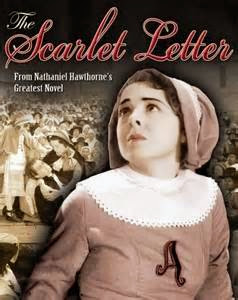By K D Grace
It’s that time again. The nest is temporarily empty. I’ve just finished my third novel in The Mount Series. To Rome with Lust is now out the door and in the gentle but firm hands my editor. And as always, I feel a bit bereft.
Has there been a celebration? Weeell, not exactly. That is unless you call more writing ‘celebrating.’ It occurred to me as I sent Rome out into the big wide world with a flutter in my heart and a lump in my throat that I really don’t know what to do with myself when I’m not writing. Since the tender farewell, there have been blog posts, there has been planning and scheming and plenty of PR to catch up on. But all of that is close enough to writing to keep me from getting too twitchy.
Sunday, during a long walk on the Downs, I found myself flirting with Medusa again. That woman and I have a real thing going on, and she often rears her serpentine locks when I’m in between stories. But it seems that every time she starts getting up close and personal, I have to put a hold on our relationship. I’ve got another project I have to finish first, but after that, I’m promising her my full attention. Not that I’m complaining about another project. I get to be Grace Marshall this time and since I already know what the plan of action is, I’ve very adroitly managed to stave off serious Empty Nest Syndrome once again. High five! I walked back home with the weather threatening rain, all the while Medusa kept whispered her story seductively in my ear. Oh that woman is persistent! But she’ll have to wait at least a little while.
It’s hard to believe that I once wrote a post about emptying the brain from the busy-ness to make room for the imagination. These days the imagination takes no prisoners and demands way more space in the brainbox than I originally and neatly allotted. Or maybe it’s just that I’m allowing all those wild exciting possibilities to run amuck because I’m too scared NOT to write.
I should probably take some time to bask in the afterglow, maybe go out for dinner and a movie with hubby, but try to tell that to Medusa. I won’t lie, there are times when I wonder if I’m all right. There are times when I wonder if maybe it’s just not normal to spend so many happy afternoons and evenings … and mornings with people who only exist in my imagination. Is there something wrong with me that I’m always longing to write more words, longing to spend more quality time with my imaginary friends? And anyway, even if I do go out, Medusa and sex in the park with a hot genius nerd and more adventures on the Fells in the Lake District with ghosts and witches — they all come along for the ride, crowding around the dinner table and shouting in my ear during the film.
All of this makes me wonder what would actually happen to me if I took a break from writing — I mean really took a break. It gives me a headache to think about it. Okay, there is reading, and I really love quality time with a good book. But I can’t possibly read and not think about how the book was written, and what inspired the author. And then there are all the ideas with which that book inspires me. You get the picture.
I can’t really count walking as something to do when I’m not writing, because there are always the ghosts in the hedgerows and the couple going at it in the back of the stables and then there’s Medusa, of course. As for gardening, well, gardening by its very nature begs rude stories. And there’s something about compost and growing things that just can’t keep from inspiring creativity.
Come to think of it, it really doesn’t matter what I do. In my head, I’m still writing, always writing. When I bang on the piano … well, there’s this romance I’ve partly written down that involves a pianist and an astronomer. No, seriously! Even when I’m ironing or doing the washing up stories are pouring into my head. Sometimes even when I’m asleep and dreaming.
Don’t get me wrong, my life is rich and full of new and wonderful experiences and, generally speaking, I’m a happy camper. But I view my life – all of my life, every experience, every emotion, every challenge, through the jaundiced eyes of a writer. Every breath, every nuance is filtered through the writer’s lens, and every experience is mined for its possibilities in story.
Now that I think of it, maybe writing IS my celebration for finishing To Rome with Lust. It always has been. That works for me, and Medusa’s happy with it, even if I do have to put her on hold. And my long-suffering husband learned ages ago that I’m scary when I don’t write. Writing keeps me happy and keeps me from being an evil bitch. It’s a win for both of us. So maybe I’ll just skip the break from writing and go straight for the sexy nerd genius. Yup! That’s a plan. Whew! I feel better already.









